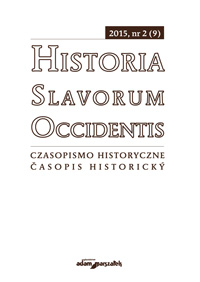Między Zakonem, Czechami i Brandenburgią
Between the Teutonic Order, the Czech Lands and Brandenburg
the role of Wielkopolska and its inhabitants in the policy of Casimir the Great until 1345
Author(s): Sebastian WytrzyszczakContributor(s): Agnieszka Tokarczuk (Translator)
Subject(s): History, Diplomatic history, Political history, Middle Ages, 13th to 14th Centuries
Published by: Wydawnictwo Adam Marszałek
Keywords: Mikołaj of Biechów;Jarosław of Iwno;Casimir the Great;the House of Wittelsbach;diplomacy;
Summary/Abstract: In the early years of his reign, Casimir the Great had to cope with the legacy of his father, Władysław the Elbow-high. Władysław the Elbow-high’s final years had seen him struggle with a powerful noble of Wielkopolska – Wincenty Nałęcz of Szamotuły, who had emerged as the victor in this trial. Casimir could not afford to ignore the noble houses of Wielkopolska. The early days of his reign witnessed his attempts to resolve matters with the Teutonic Order and Silesian principalities and to forge an alliance with the House of Wittelsbach. He also had to stand up to Czech pretensions to the Polish crown. To negotiate with the House of Wittelsbach, the king needed the endorsement of the knights of Wielkopolska, which abutted Brandenburg. Mikołaj Doliwa of Biechów and Jarosław Grzymała of Iwno saw to the durability of the Polish-Brandenburg alliance. Notwithstanding the brevity of the pact, the impact of the two knights on mutual relations was so great that the king nominated them both for the then highest official positions (provincial governors) in gratitude for their work.
Journal: Historia Slavorum Occidentis
- Issue Year: 2015
- Issue No: 2
- Page Range: 80-100
- Page Count: 21
- Language: Polish

